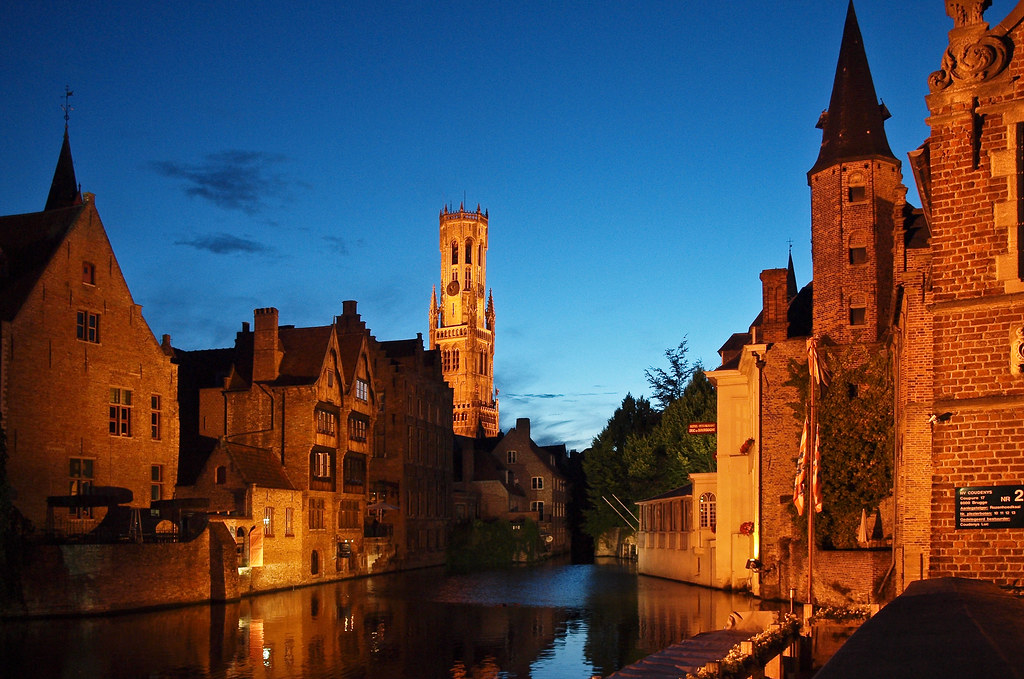The Benelux Brief – April 2025
To understand the UK’s place in the world means striving to gain a better understanding of the world. The Dispatches project brings together commentators from around the world to share key news analysis each month on their chosen region.
By Britt Flanderijn
This dispatch is written by Britt Flanderijn. Britt is a Dutch MSc International Relations (Research) graduate from the London School of Economics. With academic and professional experience across the UK, Germany, and EU institutions, she focuses on European foreign policy, international security, and identity in international relations. Each month, she reports on political developments in the Benelux region with relevance to British and wider European politics. This week we’re looking back at some developments of the first months of 2025.
Tensions in the Channel: Belgian Fishing Boat Seizures Undermine UK-EU Reset
Early April brought a sharp reminder that Brexit’s ripple effects are still very much alive, as British maritime authorities seized five Belgian fishing vessels operating in the Bristol Channel. Officials cited irregularities in the boats’ logbooks and escorted them into Newlyn, Cornwall, confiscating onboard data for further investigation. The Belgian fishermen protested that they were treated ‘like criminals’, with one stating he couldn’t even go to the toilet without surveillance. The fishermen also reported economic losses estimated at £34,000. The event caused quite a bit of commotion in Brussels, as Hilde Crevits, the Belgian minister for fisheries, expressed outrage and announced plans to address the issue with both the UK government and the European Commission.
Fishing might be a relatively small part of the economy, but politically, it still punches way above its weight. Fisheries have carried an outsized political and symbolic importance on both sides of the Channel, particularly since Brexit. The UK’s firm approach to enforcing its post-Brexit maritime borders plays well domestically but risks stirring tensions with European neighbours. Crucially, this incident comes at a moment when the UK is trying to patch things up, seeking broader strategic cooperation with the EU. Belgium might be a small country but it remains an influential player in the EU, and if the UK wants to push through bigger deals with Brussels on defence, trade, or security, it will be key to find a calmer way to manage these local disputes.
And following last week, it seems the UK is doing just that. Late April saw significant progress in talks over a new UK-EU defence pact. However, this breakthrough reportedly came after the UK made substantial concessions to Brussels regarding EU access to fishing waters. For many in the UK, this move could be seen as a departure from the promises of Brexit. The question now is whether these compromises will be enough to pave the way for deeper cooperation or if they will fuel further discontent at home.
A New Era in Belgium and a Different Story Next Door in the Netherlands?
While London and Brussels are busy rekindling ties, Belgium itself is entering a new chapter. After long coalition talks, Bart De Wever, leader of the Flemish nationalist N-VA party, has taken over as Prime Minister, heading a broad five-party ‘Arizona’ coalition, comprising Flemish Christian Democrats, the socialist Vooruit party, the French-speaking Reformist Movement, and the centrist Les Engagés. De Wever’s government has pledged to implement stricter migration policies, reverse the nuclear phase-out, and increase defence spending to meet NATO targets, signaling a significant shift in Belgium’s domestic and foreign policy priorities.
Things look a little different just across the border. In the Netherlands, the mood is more uncertain after the resignation of Pieter Omtzigt this month. Omtzigt, the straight-talking leader of the New Social Contract (NSC) party, stepped down citing burnout. More than just its leader, Omtzigt had been the architect of the NSC, building its identity around government accountability and political reform. His departure has shaken confidence in the party’s future, with recent polls suggesting a notable decline in support for the NSC without him at the helm. While the Dutch four-party coalition remains intact, it has been a rocky few months: forming the government took a large amount of time, and disagreements over migration and budget policy have significantly strained the alliance. While Belgium under De Wever looks ready to push ahead with reforms, the Dutch government may have to spend more energy holding itself together.
For Britain, these shifts inside the Benelux matter, as international partnerships are shaped as much by domestic politics as by diplomacy. With Belgium entering a new political phase and pursuing policies on migration, defence, and energy that broadly align with British interests, London could find an increasingly willing partner in Brussels. Meanwhile, Dutch politics might look a little less certain, at least for now. On the other hand, the recent visit of Dutch Prime Minister Dick Schoof to 10 Downing Street, demonstrates a continuation of prosperous cooperation. The UK and the Netherlands discussed enhancing their bilateral partnership as ‘North Sea Neighbours’, particularly on innovation in the technological areas of artificial intelligence, quantum and semiconductors.
